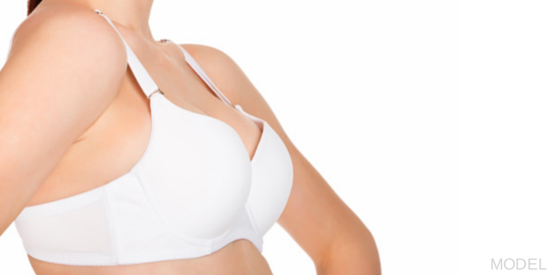THANK YOU FOR YOUR INTEREST IN DR. HASEN. DUE TO OVERWHELMING DEMAND FOR HIS OTHER SURGICAL OFFERINGS, UNFORTUNATELY HE IS NO LONGER OFFERING BREAST RECONSTRUCTION SERVICES.

October is Breast Cancer Awareness Month, and each new year brings new developments in the ongoing fight against this type of cancer. For me, this time is special because of all the work I’ve done with breast reconstruction with implants at my Naples, FL practice. The talk among the breast cancer community at large this year centers around a prominent doctor’s recent recommendation for new guidelines for genetic testing.
About 5 to 10% of breast cancer cases have a genetic component, in which mutations in the BRCA1 or BRCA2 genes lead to cancer. Up to 65% of women with the mutation develop breast cancer before age 70. Current guidelines recommend genetic counseling for women whose health and family history indicates a likelihood of gene mutation. Signs that a mutated gene may be present include:
- A breast cancer diagnosis before age 50 (patient or family member)
- Both breast and ovarian cancer (patient or family member)
- Triple-negative breast cancer (patient or family member)
- 3 or more relatives with breast cancer
Dr. Mary-Claire King of the University of Washington originally discovered the BRCA1 gene, and this year she’s being honored with a prestigious medical science award from the Albert and Mary Lasker Foundation. She used the spotlight to recommend that all women age 30 and older undergo genetic testing for cancer-causing mutations. The genetic test is simple — a saliva sample is all that’s required, and women need to test only once. Dr. King estimates that her screening recommendation would identify mutations in hundreds of thousands of women, arming them with the information they need to make sound health decisions.
For many women, knowing they have the gene mutation means opting to undergo a preventive mastectomy, a procedure to remove the breasts before cancer has a chance to develop. Many women who undergo preventive mastectomies choose to undergo breast reconstruction. I realize the profound effect mastectomy can have on a woman’s life, and that’s why I’m committed to staying on top of the latest advancements in breast reconstruction. Although the surgery is similar to breast augmentation, breast reconstruction patients often have additional physical and psychological considerations to take into account, and I try to prioritize these to ensure beautiful, healthy futures.

Leave a Reply